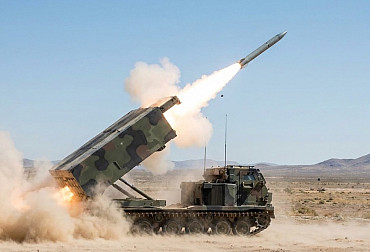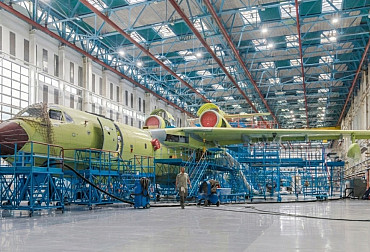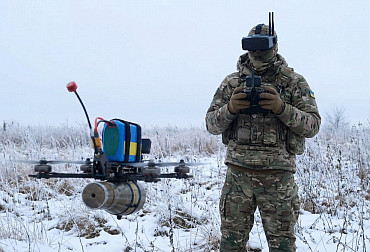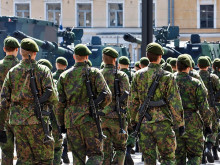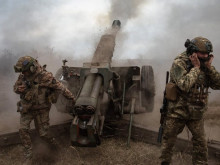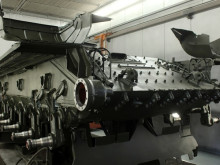Domestic defence industry - what it brings and why support it
Many countries of the European Union and the North Atlantic Alliance did not consider the defence industry as a promising industry and often had a negative and resistant attitude towards it. This attitude has changed dramatically following the invasion of Ukraine by Russian troops in February 2022. Today, the defence industry is one of the key topics of professional debate and countries are looking for ways and means to support this type of industry. Indeed, a developed and robust defence industry brings a wide range of benefits, not only in terms of security, but also in the economic and scientific spheres.
Like many other industries, the domestic arms industry brings a number of benefits. When we talk about security, there are two absolutely key positives. The first is independence from foreign suppliers. This is particularly important in times of crisis, when there is high demand for specific military equipment or when the supply chain is disrupted.
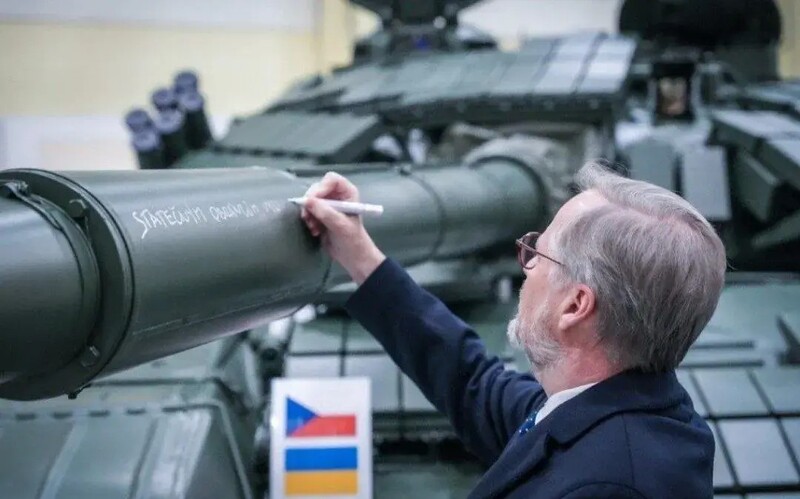
A domestic defence industry that is sufficiently developed to supply the state with the necessary products and services for defence and military purposes is also a powerful tool for a country's political and economic independence. Its importance in terms of independence is demonstrated by the case of Ukraine. It receives aid from its Western allies in the form of military equipment, but the weakened Ukrainian defence industry cannot repair it. Again, it has to rely on the West for help, but there may be problems here, as has been seen in Slovakia, for example. A service centre was set up in Michalovce to repair military equipment of German origin, but due to customs problems, German weapons could not cross the Ukrainian-Slovak border and had to be transported to repair facilities in Germany, which significantly delayed their re-deployment.
The level of a country's defence capability depends on a strong domestic defence industry
If the domestic defence industry maintains a high production capacity, it can supply the armed forces with the required numbers of military equipment in a relatively short time, which cannot be said of foreign suppliers who also prioritise the needs of the home country in times of crisis. In this respect, it is important for the state to purchase military equipment from local manufacturers who can supply it according to the military's requirements, or to involve them significantly in acquisition processes with foreign suppliers in the event that the demanded systems cannot be produced by domestic industry. An example of the right approach is the Tatra Trucks automotive company, which supplies Tatra chassis not only for the Czech Army's trucks and logistics vehicles, but also for various weapon systems. As a result, in addition to the chassis platforms themselves, the Czech army has sufficient spare parts, service and logistical support.
The domestic defence industry not only increases the security of a given country, but also positively influences its economic development. Like any other industry, armaments companies offer employment to hundreds of people, either in-house or in the supply chain, and in a large number of cases these are skilled and specially trained employees. Armaments conglomerate BAE Systems alone directly supported 132,000 full-time jobs in 2022. In terms of the economy, as well as supporting employment, the contribution of the domestic defence industry to the national budget is important.
By investing in the products of the domestic defence industry, the state not only helps to maintain employment in these companies, but the money spent is returned to the budget in the form of taxes and levies. Here, Tatra Defence Vehicle serves to illustrate the positive impact on the state economy. In 2017, the company received an order for 20 Pandur II CZ 8x8 armoured vehicles for the Czech Army. According to information available from a study by the Ernst & Young consultancy, the order for 20 Pandur II CZ 8x8 armoured vehicles worth CZK 1.6 billion generated 800 jobs for one year, and each CZK spent on the purchase of the vehicles generated CZK 3.2 in the Czech economy in the supply chain. In the form of taxes and levies, Tatra Defence Vehicle paid a total of CZK 402 million into the Czech economy between 2017 and 2020, when the contract was implemented.
A tool of economic diplomacy
The domestic defence industry generates significant economic benefits even if the state uses it effectively as an instrument of economic diplomacy. However, it is imperative that the state supports domestic arms companies abroad and provides them with the necessary support. Cooperation in the field of defence and security develops bilateral relations between states, can create solid ground for other forms of cooperation in key sectors, and success in foreign markets brings new orders and contracts to companies, which benefit the domestic budget in the form of the aforementioned taxes and levies.
The domestic defence industry has been successfully used in economic diplomacy by, for example, South Korea. It has become a major supplier of military equipment around the world over the last few years, not least because top government officials, including President Jun Sok-jool, have made strengthening South Korea's defence industry in global markets a priority. This approach has already had concrete results. South Korea has signed contracts with Poland for the delivery of hundreds of K2 tanks, K9 howitzers, 50 FA-50 light fighter aircraft and nearly three hundred K239 Chunmoo salvo rocket launchers, while Australia will receive 129 AS-21 Redback infantry fighting vehicles from the Korean defence industry under the LAND 400 Phase 3 programme.
The domestic defence industry is beneficial to the national economy even if it does not have the capability to produce a particular type of military equipment. Here, it is imperative that the state demanding this type of military equipment insists on the maximum involvement of domestic manufacturers in the entire acquisition project. The term offset is used for this type of cooperation, which serves as compensation for funds spent on the purchase of weapon systems abroad and as such can take several forms. It can be the involvement of local manufacturers in the supply of components for the equipment being procured, in its modernisation and repair, the transfer of know-how, the involvement of local companies in the supply chain, or even the construction of a plant for the production of equipment in a given country in cooperation with a local partner. An example is Romania, which has a minimum offset value set at 80% for all acquisitions of weapon systems from abroad exceeding EUR 3 million. This condition was also used by Romania in 2020 when, in connection with the acquisition of new military vehicles by IVECO, it requested the establishment of a production line on its territory. Up to 80% of the 942 vehicles will be produced in Romania.
Defence industry and science
It is also known from history that the defence industry is closely linked to the field of science and research and modern technology. Evidence of this is the discovery of the powerful internal combustion engine, which enabled the development of self-propelled vehicles and aircraft, or the use of precision-guided weapons, modern communications and reconnaissance systems in the Gulf War, when these became absolutely crucial in the conduct of combat operations. Today we can talk, for example, about the development and production of laser and high-energy air defence systems such as the US THOR suite. This is designed to protect objects against mass attacks by unmanned systems and drones and uses electromagnetic and radio waves to disable them. There is increasing discussion about the possibility of implementing artificial intelligence in the military in order to maintain a technological edge over the adversary. The defence industry can make a major contribution to science and research through joint projects with scientific institutions. This approach is being pursued by BAE Systems, which has partnered with several universities across the UK in recent years, helping to educate younger generations with a quality high-tech education.
The defence industry is now very popular, which is a step in the right direction after years of disinterest in the sector by European countries. Unfortunately, it is rather unfortunate that this change in attitude has only come at a time when the security situation has deteriorated significantly.
The benefits of the defence industry have been clearly demonstrated for long enough for the arms industry as such not to be referred to as a 'death trade'. The products and services of the defence industry serve to protect the lives of the population from external threats, as we are seeing today in the war in Ukraine. At the same time, it must be increasingly emphasised that a strong domestic defence industry, which receives sufficient support from the state, not only contributes to increasing the country's defence capability, but also promotes its independence, employment and economic performance, and offers an opportunity and platform for combining modern approaches and technologies in cooperation with scientific institutions and organisations.











